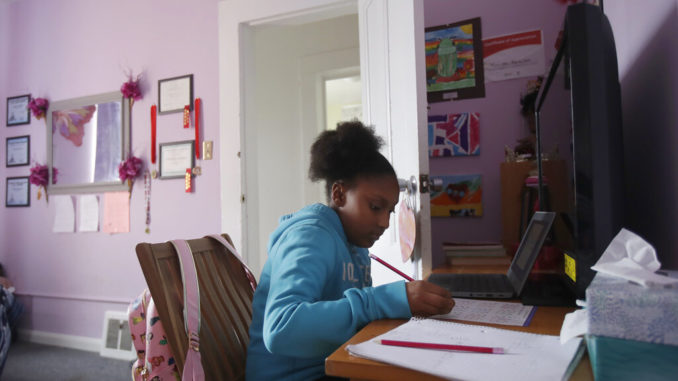
ALBEMARLE — Directly following the resignation announcement of Stanly County Schools’ Superintendent Dr. Jeff James, another shockwave hit local schools: the announcement that students would not be returning to their physical school buildings this year.
The announcement was made by Gov. Roy Cooper, State Superintendent Mark Johnson and State Board of Education Chairman Eric Davis at a Friday, April 24 press conference, with Cooper saying, “We have decided to continue remote learning for the rest of the school year for our K-12 public schools.”
Initially Cooper closed schools for two weeks starting on March 14, but this was later moved to May 15. Stanly County Schools have been using virtual learning since this time. Students in the district use the “Clever” platform in order to access all their various virtual tools. Recently, a Clever Family Portal was added that will help parents assist their children in their lessons and keep track of their progress.
James likes to say, “If you can’t get it in Stanly County, you can’t get it.” And Stanly County has a virtual education platform that has been operational since well before the shutdown, allowing for a relatively easy transition when compared to other counties.
“School buildings will stay closed to students for this school year, but school isn’t over,” Cooper said in a statement, encouraging districts to keep the virtual lessons coming even if they aren’t meeting in person the rest of the year. Cooper also announced that in partnership with AT&T and Duke Energy, WIFI hotspots will be deployed using school buses to areas where students are less likely to have the connectivity to access online tools.
“Teachers, staff, and students were hopeful that they could return to the classroom, but that is just not practical at this point,” said Johnson at the briefing. “However, I want to assure everyone that this will not be the new normal. While this crisis has forced us to be reactive over the last month, plans for next school year are already underway and will be proactive.”
Acknowledging the state-imposed order will cause districts and their students some challenges, officials in Raleigh have signaled leniency in a number of areas. A draft bill passed unanimously out of the House COVID-19 Select Committee’s education workgroup on April 23 with an allowance for districts to begin next school year a week early.
Also, the State Board of Education agreed in late April to grade middle and elementary students on a pass/fail basis and allow high school students to either choose pass/fail grading or a letter grade. Graduating seniors are an exception and will be given a “pass” or “withdraw” depending on their performance before the shutdowns.
